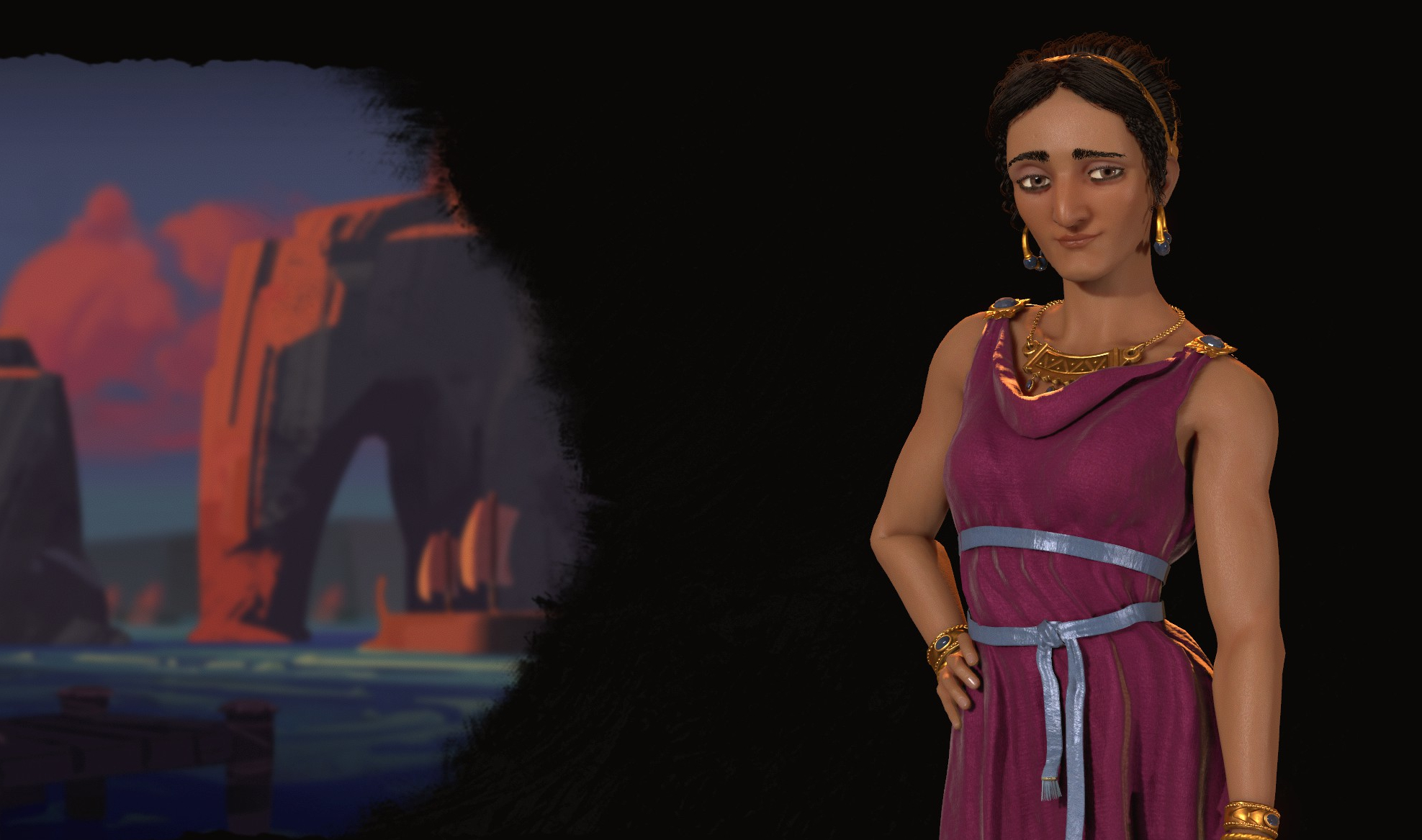Our Verdict
Gathering Storm is an ambitious expansion full of welcome additions, even if it does falter at the end.
PC Gamer's got your back
What is it? A 4X expansion full of natural disasters and and politicking.
Expect to pay £35/$40
Developer Firaxis Games
Publisher 2K
Reviewed on GTX 1080Ti, Intel i7-8086K, 16GB RAM
Multiplayer Yes
Link Official site
Buy it Steam, Humble Store
Civilization 6: Gathering Storm turns climate change into an end boss. After thousands of years of progress and expansion, the surviving civilisations have another hurdle to jump over, one that's ostensibly greater and more complex than any they've encountered before. It throws plans into disarray, transforms the map and can't be overcome by armies or culture. It's the most exciting Civilization has been in ages.
For most of history, civs have barely any impact on the climate. It's not until resources like coal and oil start being exploited that CO2 emissions start to increase and transform the map, mostly through rising sea levels. Foul weather, earthquakes and volcanic eruptions, however, can interfere with your empire-building plans whenever, so nature is a persistent adversary.
The very first choice you make after picking a civ—there are eight new ones, and nine new leaders—is finding a hex to settle on, typically on your first turn. Straight away, Gathering Storm flings a few more decisions into the mix. If you're playing as the Maori, for instance, you start at sea and get bonuses for every turn you choose to forgo putting down roots, while the Phoenicians get more flexibility later on, thanks to their ability to move their capital to any other city with their unique building. There are some unusual twists among the expanded roster that make them stand out even as the list grows massive. No matter the civ you're playing, you'll still need to spend a bit more time considering where to establish your first city.
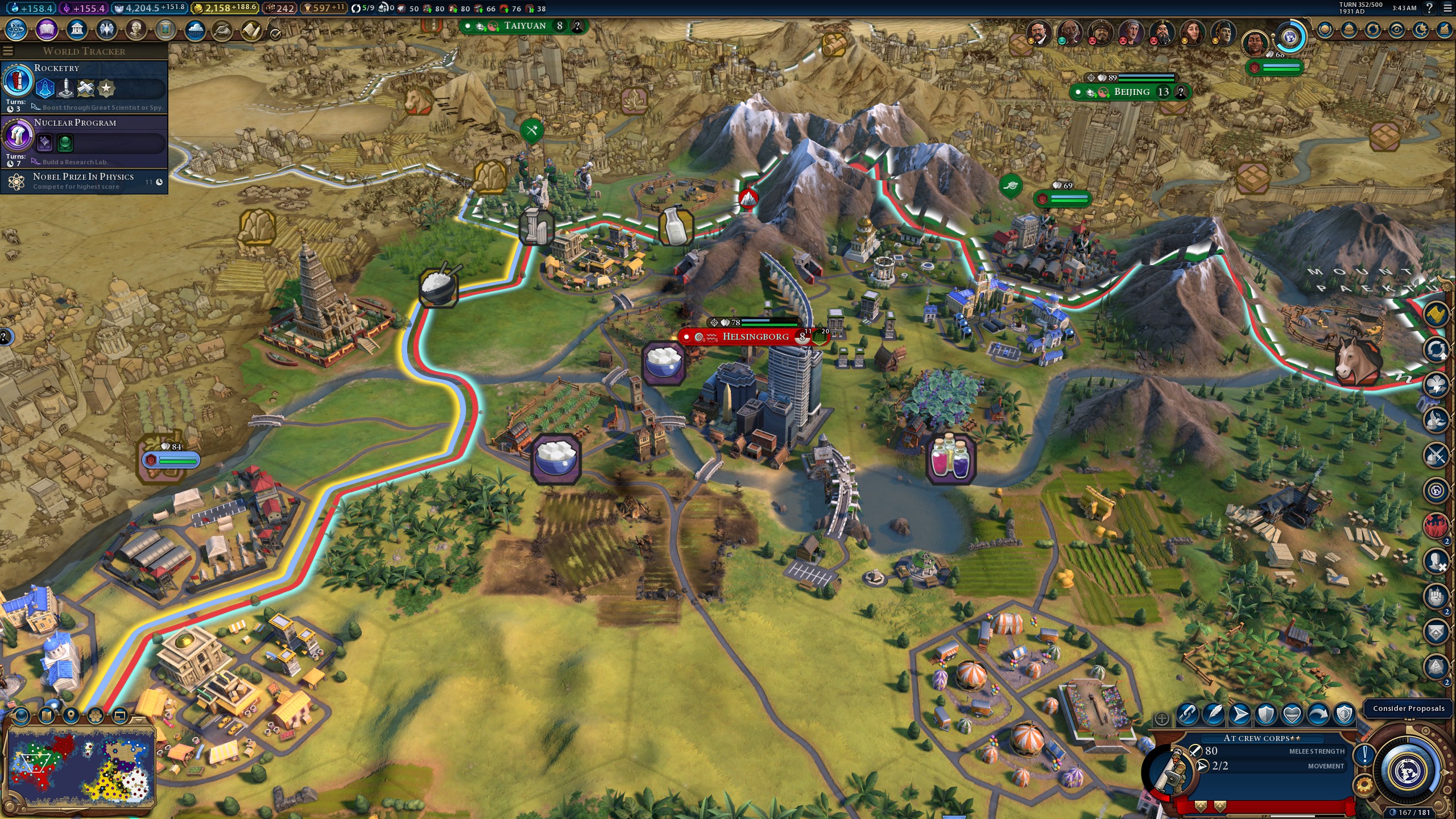
Plonking your capital right on a flood plain puts all of the improvements and districts at risk of destruction, while making your home near a volcano is just asking for trouble. There are rewards for taking those risks, though, notably the increased fertility of the nearby hexes. Despite being random events, you can still plan; you can still build the potential risks and rewards into your strategy.
While climate change is complicated, Gathering Storm keeps it easy to parse, focusing on a few specific sources. Strategic resources like coal can be burned for fuel to enhance certain modern and later buildings, while some units require a constant supply or you won't be able to use them. They're important resources, then, but they're also the reason CO2 levels rise. So you have some pretty big, but thankfully clear, choices to make. Swearing off oil might cost you some units and force you to spend time switching your cities to a new power source, but it will also slow down the changes.
It's a very different kind of threat from an aggressive neighbour. Disaster can strike anywhere on the map, though some places are at greater risk than others. From the modern age onward, buildings and projects appear that can mitigate things like flooding or rising sea levels, but that's time and resources you might not be able to afford. But that's when your aggressive neighbour might save you.
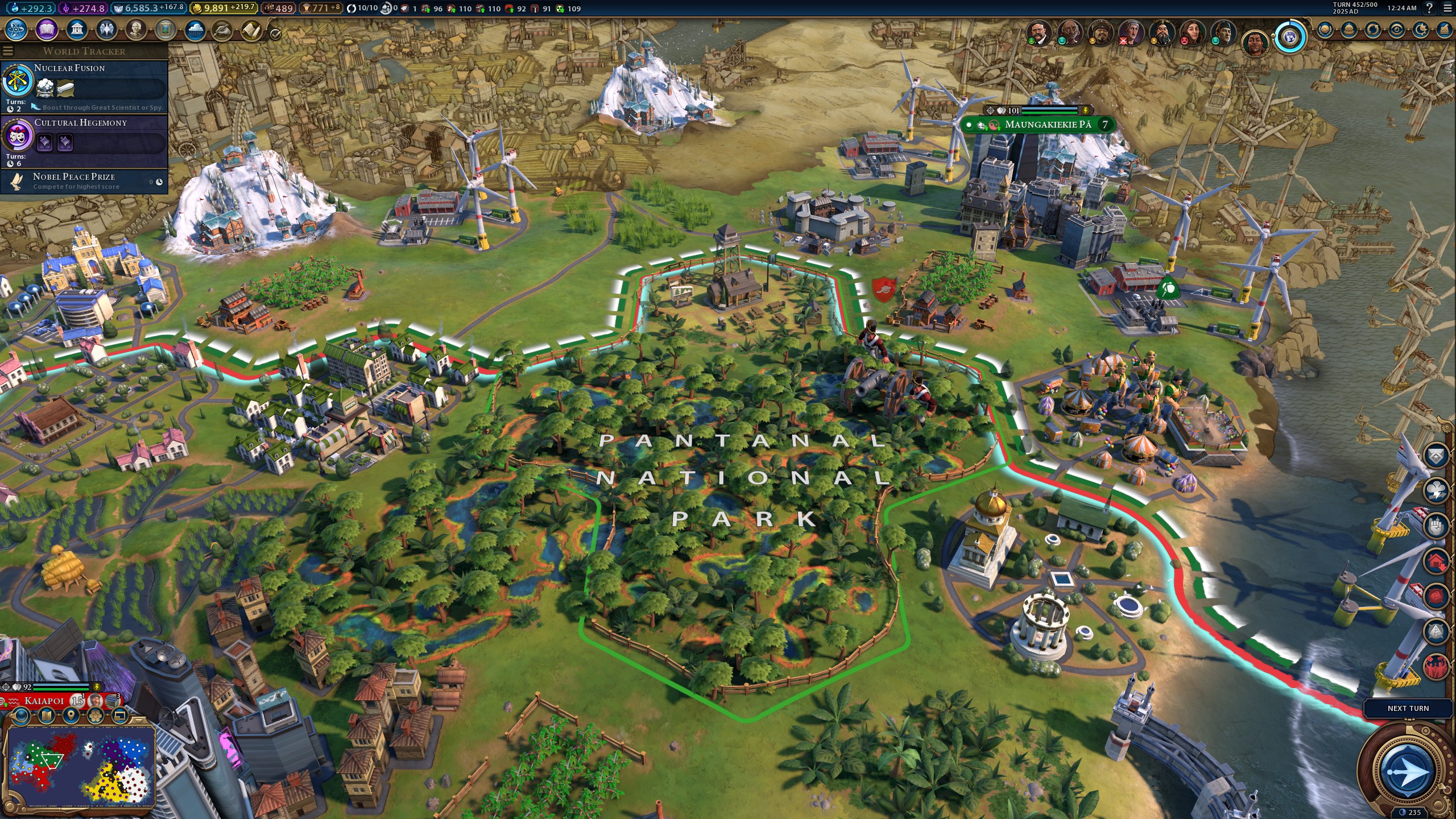
Gathering Storm doesn't treat natural disasters or climate change as the concerns of individual civs. Through the World Congress, motions can be put to the other civs, creating an emergency event where everyone is called on to send aid to the victim of the disaster. Like other emergencies, they're framed as competitions, which each civ attempting to excel, whether it's at being very charitable or stopping Katherine of Sweden from converting another city to Taoism.
Using the World Congress becomes even more important as the danger increases. It's all well and good to look at the melting polar ice caps and say "OK, I'm going to buy a Tesla and go vegan", but it takes an international, political effort to make a tangible difference. I shut down my oil platforms and coal mines, I decommissioned my ships and planes, but even then the seas continued to rise. It took international legislation banning certain power plants and some friendly competition between civs to make a dent.
Always it's a competition, which suits Civilization nicely. The impending ecological disaster is a good showcase of the new diplomacy system, but you'll end up becoming very familiar with it long before the glaciers start vanishing. Diplomatic favour funds each civ's international clout. It's a resource that can be traded for both the tangible, like gold or artefacts, and the fleeting, like promises. Competing in international events, helping out during emergencies and making allies will earn you some, too. When the World Congress meets, that favour translates into votes, letting you try to push your agenda at the global level.
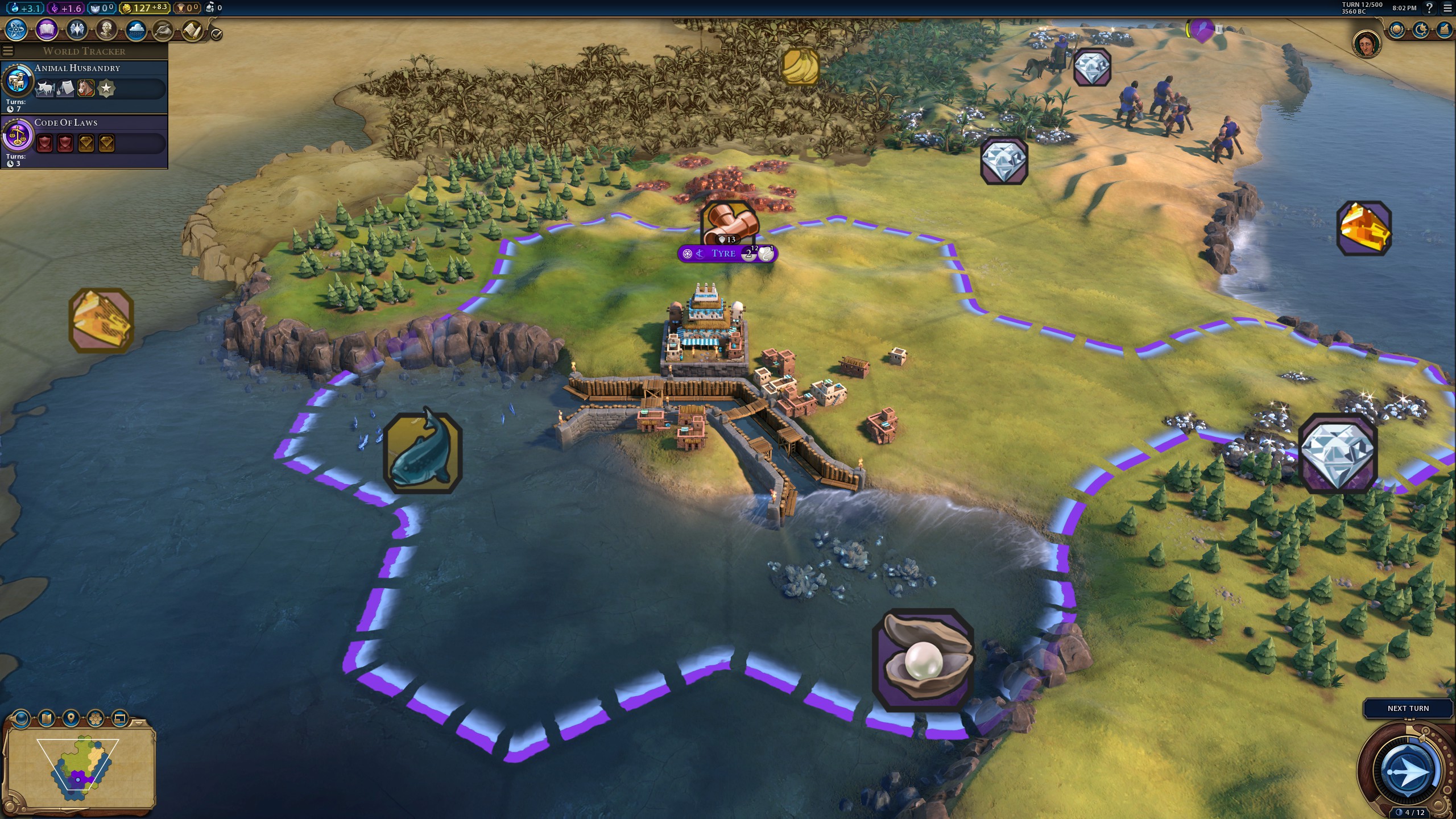
I've become a very two-faced leader, I confess. In person it's all smiles and assurances, but the moment the World Congress convenes, I'm there with a knife behind my back. "Yeah, Trajan, we're good buddies," I say as I spend all of my favour to neuter his army. Instead of a diplomatic victory hinging on you making everyone like you, it depends on you making deals, competing in international events and wisely spending favour. Sure, alliances and becoming the suzerain of a city-state will net you favour, but there are several routes to winning the political game, and being a sneaky wheeler and dealer is one of them.
This is certainly the most engaging diplomacy has been in Civilization 6, and perhaps in the series. Other Civilizations have modelled global diplomacy and politics, but not at this scale and definitely not so woven into the fabric of the game. Rise and Fall got the ball rolling, but it's Gathering Storm that turns diplomacy into a clear strategy and makes it instrumental in fixing new problems that involve everyone. Even though it's still competitive, there are unifying moments where every civ makes some sacrifices to right the ship.
The setup for the end game—if it all goes wrong, anyway—is pretty dramatic. The coast has been swallowed up by the ocean, natural disasters are increasing in occurrence and whole industries, previously reliant on fossil fuels, are shutting down. Every inch of the world, or what remains, is already in use, so expansion can only come in the form of conquest. It's all very World War 3. And then… it stops.
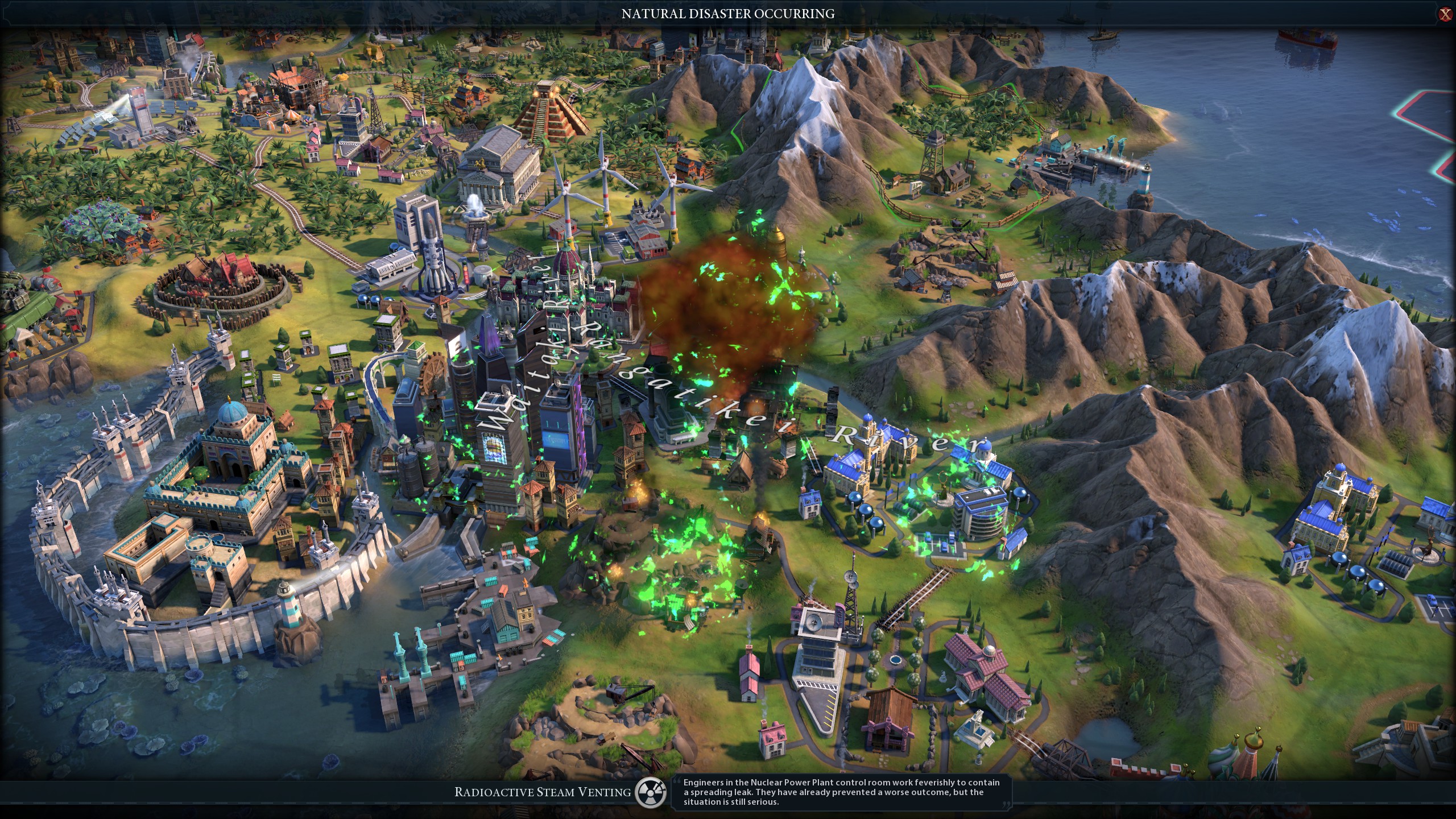
Climate change just sort of ends. During the final phase, 85 percent of the ice caps melt and disasters start jumping up by a couple of percent, but then there's just no more climate change. In my large continents map, just over 70 hexes were swallowed by the sea, which did submerge an island and make some of the coast unusable, but it was surmountable, especially once I unlocked technology that allowed me to build habitats in the ocean.
The habitats, called seasteads, are one of the new techs that appear during the future era. They're handy, and there's something about building homes in the water that calls to mind Alpha Centauri, which is never a bad thing, but otherwise the new era is a bit of a dud. The scope is very narrow, in what is otherwise an ambitious expansion. Most of the techs just seem to improve the flashy sci-fi unit you can now construct: a giant killer robot. It's tough, silly, and I won't deny that smashing up enemy cities with giant death machines is fun, but with a few of them built, the future era quickly runs out of new things. It's brief and largely extraneous.
With no more changes on the horizon and the sea levels settling, all those self-imposed limits can be lifted, returning the endgame to something a bit more traditional. I kept waiting for the final crescendo, some awful apocalypse, but it never came. I was acting under the illusion that we were trying to stave off the end of all human civilisation, but this seems less urgent. It's still best to avoid it, but knowing that it fizzles out robs it of some of its power.
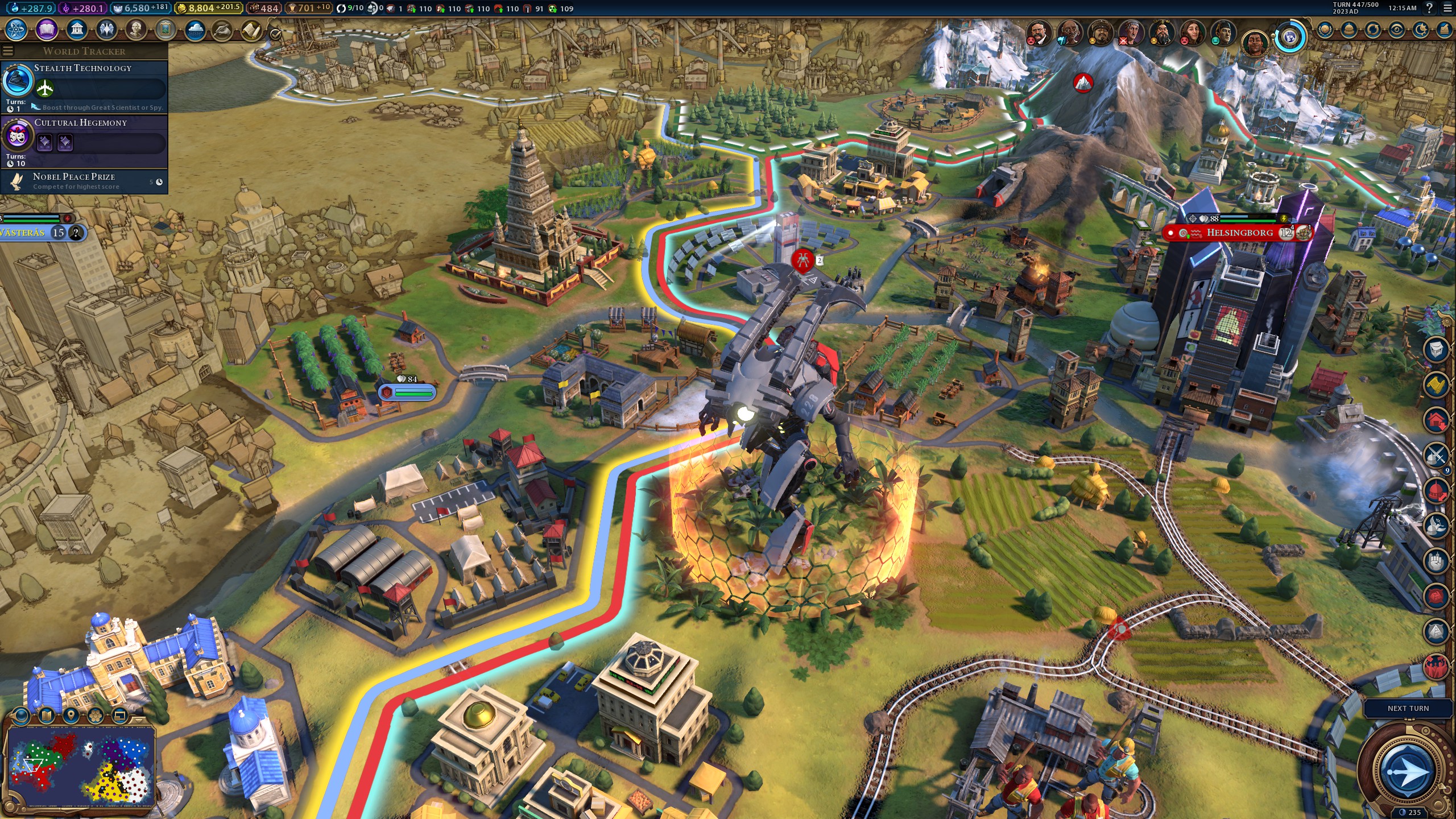
It's the journey to that end scenario, whether you stop climate change or not, where Gathering Storm has the most impact. The new emergencies, cooperation and the effect of climate change even on war can dramatically change the game, even if you know that the end of the world never arrives. The choice of map also makes a difference. Playing on an archipelago or on islands, for instance, ensures that a huge amount of damage will be done before the climate meter stops moving. And, as always, you can exert some control over the random maps, tweaking properties like initial sea levels and resource abundance. If challenge is what you want, you can still find it.
Civilization 6: Gathering Storm bites off a lot, but it proves more than capable of juggling big concepts like climate change and global diplomacy. It turns them into coherent but still complex systems that you'll constantly be interacting with, even before you start noticing that the beaches are vanishing. The climax doesn't live up to the build-up, but Civilization 6 is still a richer game for all the expansion brings.
Gathering Storm is an ambitious expansion full of welcome additions, even if it does falter at the end.

Fraser is the UK online editor and has actually met The Internet in person. With over a decade of experience, he's been around the block a few times, serving as a freelancer, news editor and prolific reviewer. Strategy games have been a 30-year-long obsession, from tiny RTSs to sprawling political sims, and he never turns down the chance to rave about Total War or Crusader Kings. He's also been known to set up shop in the latest MMO and likes to wind down with an endlessly deep, systemic RPG. These days, when he's not editing, he can usually be found writing features that are 1,000 words too long or talking about his dog.
